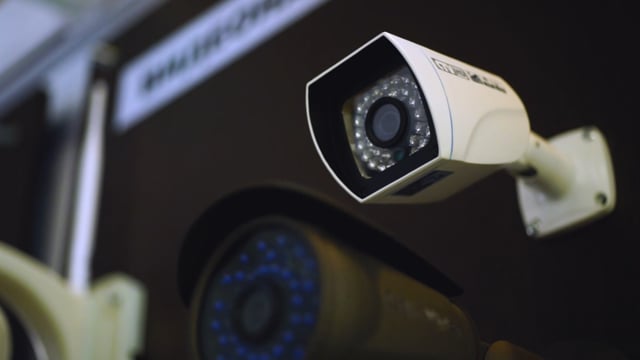
 03 July 2023
03 July 2023


Fires are serious disasters, especially in enclosed spaces, carrying both financial and life-threatening risks. For the early detection and intervention of fire, a fire alarm device has become an indispensable part of modern fire suppression systems. This device works in integration with other fire safety systems to prevent potential disasters before they escalate.
So, how does a fire smoke detector work, where is it used, and what should be considered when choosing one? Below, you will find all these questions answered in a clear and detailed way.
A fire smoke detector is an electronic device that detects smoke particles in the environment and alerts through audible or visual alarms. The main purpose of these systems is to identify a fire before it grows and thus prevent loss of life and property.
Especially during nighttime or when a building is unoccupied, smoke detectors can automatically activate fire suppression systems or send remote notifications to initiate an intervention process. This way, the spread of fire can be prevented.

A fire smoke detector works in integration with fire extinguishing systems to enable early intervention in the event of a fire. While detection systems identify the fire, the extinguishing systems are immediately activated to suppress the flames.
For example, when a fire smoke detector in a shopping mall ceiling detects smoke, the sprinkler system is automatically activated and suppresses the fire at its source. This significantly reduces response time and minimizes potential damage.
Such solutions are provided within the scope of integrated security systems, ensuring centralized and coordinated protection against all risks.
Smoke detectors can be installed in all types of buildings, but in some facilities, their use is legally mandatory:
Residential buildings (apartments and houses)
Offices and workplaces
Hotels and guesthouses
Shopping malls
Hospitals and healthcare facilities
Factories and production plants
Educational institutions (schools, training centers, etc.)
The use of fire smoke detectors in these institutions is mandated by legal regulations. The Regulation on Fire Protection of Buildings clearly specifies their obligation.
Smoke detectors operate with different technologies. The main types are:
Which type should be chosen depends on the size of the environment, intended use, and technical infrastructure.
Selecting the right fire smoke detector is crucial for life and property safety. The following criteria should be taken into account:
Detection Speed and Sensitivity: How quickly and how small particles can be detected.
Certifications and Standards: Products with EN54 certification and TSE approval should be preferred.
Energy Consumption and Battery Life: For battery-operated models, regular checks are necessary. Long-lasting batteries should be chosen.
Maintenance and Service Options: Easy-to-clean models with accessible components should be considered.
To ensure reliable performance, fire smoke detectors must be checked regularly. Each device should be tested manually at least once a month using the test button. Additionally:
A professional inspection should be carried out annually.
The surface of the detector should be cleaned from dust and dirt.
Models with low-battery warning features should be preferred.
Faulty detectors should be replaced immediately.
A neglected smoke detector may fail to operate during a fire and create significant risks.
It detects smoke and triggers an audible/visual alarm; some models also offer automatic suppression activation and mobile notifications.
They are required in public spaces such as hotels, shopping malls, schools, hospitals, and residential complexes.
One detector should be placed for every 60 m², with additional detectors required in corridors, staircases, and high-ceiling areas.
Your personal data, as the data controller, is managed by Company Name (Atlastek Security Technologies) operating the website www.atlastek.net , with the primary principle of protecting the privacy of its visitors. This Cookie Usage Policy (“KVKK”) explains to all website visitors and users which types of cookies are used and under what conditions.
Cookies are small text files stored on your device or network server by the websites you visit via your computer or mobile device.
Cookies are generally used to provide you with a personalized experience while using the website you visit, to improve the services offered, and to enhance your overall experience. They can also contribute to ease of use while browsing a website. If you prefer not to use cookies, you can delete or block them through your browser settings. However, please note that this may affect your use of our website. Unless you change your cookie settings in your browser, we will assume that you accept the use of cookies on this site.
Cookies on websites collect data related to your browsing and usage preferences on the device you use to visit the site, depending on their type. This data includes information about the pages you access, the services and products you review, your preferred language, and other preferences.
The main purposes of using cookies on our website are listed below:
Session cookies ensure the proper functioning of the website during your visit. They are used to maintain the security and continuity of both our sites and your visit. Session cookies are temporary; they are deleted when you close your browser and are not permanent.
These cookies are used to remember your preferences and are stored on your device through your browser. Persistent cookies remain on your device even after you close your browser or restart your computer. They are kept in your browser's subfolders until deleted through your browser settings.
Some types of persistent cookies may be used to provide you with personalized recommendations based on factors such as your purpose of using the website.
Thanks to persistent cookies, when you visit our website again with the same device, it is checked whether a cookie created by our website exists on your device. If it exists, it is recognized that you have visited the site before, and the content delivered to you is determined accordingly, thereby providing you with a better service.
These are cookies necessary for the proper functioning of the website you visit. The purpose of these cookies is to provide essential services by ensuring the site operates correctly. For example, they allow you to access secure areas of the website, use its features, and navigate through it.
These cookies collect information about how the website is used, the frequency and number of visits, and show how visitors arrive at the site. The purpose of using such cookies is to improve the website’s operation, enhance performance, and determine overall trend directions. They do not contain data that can identify individual visitors. For example, they indicate the number of error messages displayed or the most visited pages.
Functional cookies remember the choices made by the visitor within the site for their next visit. The purpose of these cookies is to provide ease of use for visitors. For example, they prevent the user from having to re-enter their password on each page they visit.
They measure the effectiveness of advertisements presented to visitors and track how many times the ads are viewed. The purpose of these cookies is to provide visitors with advertisements tailored to their interests.
Similarly, they help identify visitors’ interests based on their browsing and provide relevant content. For example, they prevent the same advertisement from being shown to a visitor repeatedly within a short period.
To change your preferences regarding the use of cookies or to block or delete cookies, it is sufficient to modify your browser settings.
Many browsers offer options to control cookies, allowing you to accept or reject cookies, accept only certain types of cookies, or be notified by the browser when a website requests to store cookies on your device.
At the same time, it is also possible to delete cookies that were previously saved in your browser.
If you disable or reject cookies, you may need to set some preferences manually. Since we will not be able to recognize or link your account, some features and services on the website may not function properly. You can change your browser settings by clicking the relevant link in the table below.
The Website Privacy Policy is dated …./…./….. In the event that the entire Policy or certain articles are updated, the effective date of the Policy will be revised. The Privacy Policy is published on the Organization’s website (www.atlastek.net ) and made accessible to the relevant individuals upon request by the data subjects.
Atlastek Security Technologies Address: Mahalle Adı Sokak Adı, No: 1/A, 34444 District Name/City Name Phone: +90 216 555 55 55 E-Mail: mail@alanadi.com Website: www.atlastek.net